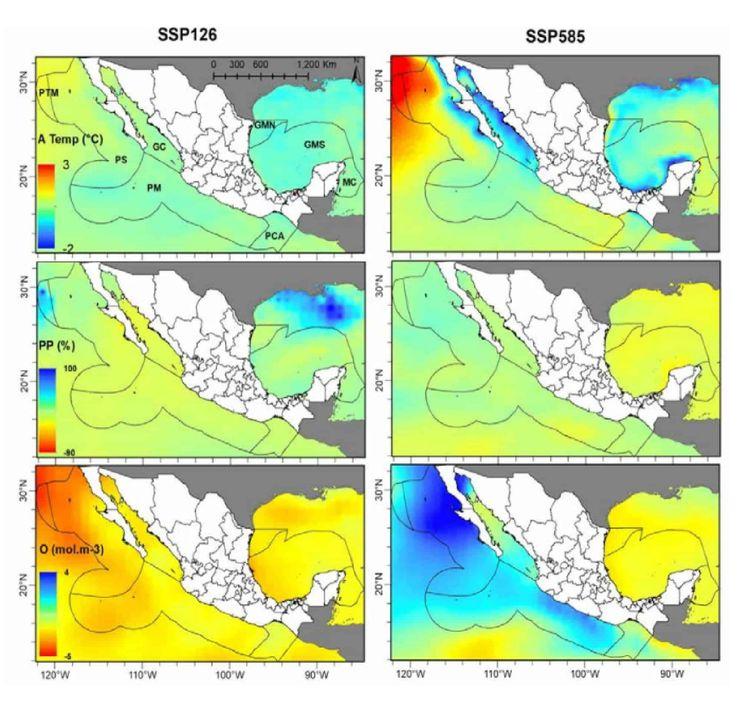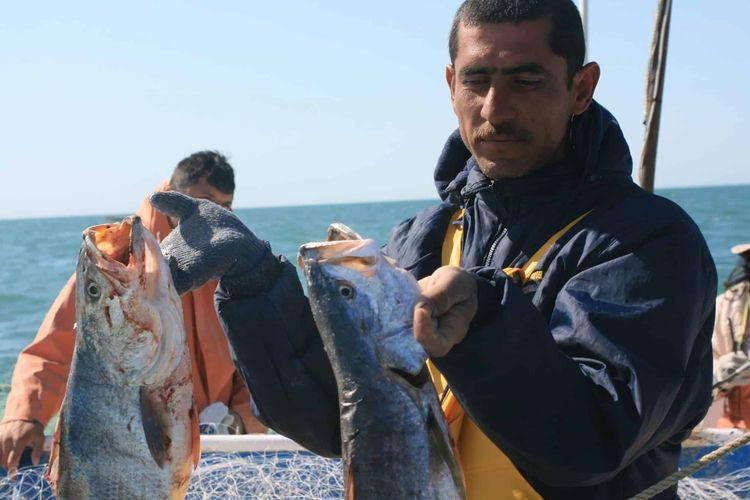The effects of the climate crisis reach Mexican fishermen. In the most favorable scenario, by 2050 there could be a drop in oxygen in all marine regions. In the least favorable, by 2100 the oceans will have an increase in temperature of up to 4.5 degrees Celsius.
These scenarios are documented in the recently published analysis “Climate Change in Mexico: Public Policy Recommendations for the Adaptation and Resilience of the Fishing and Aquaculture Sector”, prepared collaboratively by academics, associations and the Environmental Defense Fund (EDF) of Mexico.
“The best case scenario means that as a country and globally we are making every effort to reduce greenhouse gas emissions. Under this, the temperature change would average one degree centigrade. [...] Even if you see little, the species show a different distribution,” said Leonardo Vázquez, independent consultant and part of the group of specialists who participated in the study.
In contrast, he explained, the worst-case scenario involves development based on fossil fuels. The reality is that there are fishing communities that are vulnerable to climate change.
The increase in sea temperature, the increasing intensity of hurricanes, the acidification of oceans and the decrease in oxygen concentration will have an impact on the more than 200,000 people who are engaged in fishing in Mexico.
According to the analysis, coastal states such as Sinaloa, Sonora, Baja California and Baja California Sur are at greater risk by 2050, while in 2100 there are towns in Veracruz, Chiapas, Michoacán, Tamaulipas and Quintana Roo.
“Even in that sense, we should not send a fatalistic or pessimistic message. There are many variations that can be highlighted by place,” said Leonardo Vázquez. Some of them will depend on the exposure, susceptibility and poor adaptive capacity of the region.

“Even in that sense, we should not send a fatalistic or pessimistic message. There are many variations that can be highlighted by place,” said Leonardo Vázquez. Some of them will depend on the exposure, susceptibility and poor adaptive capacity of the region.
Fishermen in the face of climate change
Before reaching 2050 or 2100, anglers now recognize changes in fish, catch and hurricane seasons.
“No, in the sector we are not ready for climate change,” says Tomás Camacho, a fisherman at the Puerto Chale cooperative fishing production company in Baja California Sur.
For Tomás, fishing is the backbone that supports coastal communities in his region. “From the owner of the little shop to the fishermen, if there is no fishing, no one wins. That is why we must aim to make our fisheries sustainable but, at the same time, that stability is guaranteed to fishermen,” he said.
By 2050, under the least favorable scenario, Atlantic regions would lose between 11 and 15% of their primary productivity. By 2100, the least favorable scenario shows that there will be decreases of 50 to 80% in primary productivity, the study indicates.
Another threat is the increased intensity of hurricanes. In May, the National Office of Oceanic and Atmospheric Administration (NOAA) predicted that the 2021 hurricane season would be extremely active. In Mexico, it wreaked havoc on fishing communities such as Hurricane Grace in Veracruz or Hurricane Pamela in Nayarit.
“It is important to distinguish that in the study (from EDF) we do a socioeconomic vulnerability analysis where components are estimated such as how dependent people are on fishing or aquaculture according to permits by entity; what variables are affecting the localities, where we see the temperature, maximum or minimum averages; and what is the adaptive capacity, the ability to anticipate, respond and act after an impact of a community, which is considered with variables depending on employment, social security, knowing how to read and write...” , added Leonardo Vázquez.

Photo: EDF from Mexico
Fishermen in the face of climate change
The EDF study includes a series of recommendations at the local and national levels to improve the adaptive capacity of fishermen and aquaculture. Proposals include the development of a National Program for Fisheries and Climate Change, a Risk Atlas for the fishing sector and communication spaces between fishermen and authorities.
Tomás Camacho expresses the need for training to face climate change. “Government support programs other than to give away money, that are to train and try to make fisheries more sustainable without affecting fishermen.”
The last proposal commented on by the fisherman is environmental education. Mostly girls and boys from the communities that will grow and will continue the activity. “Talk about fishing, sustainability and climate change so that we fishermen also have another vision.”



Comentarios (0)